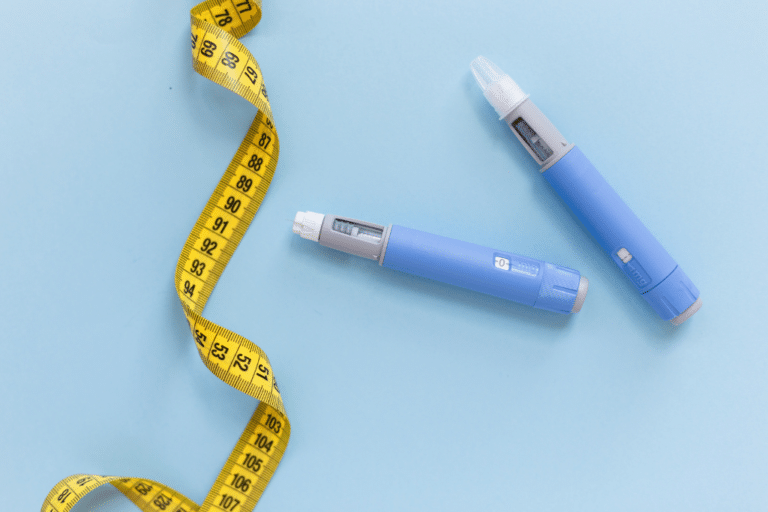I’m sure you’ve noticed. It seems as if there is an entire movement dedicated to the science of anti-aging. Creams, potions, and pills galore that are designed to keep us looking good and staying healthy for as long as possible – which means slowing the aging process. In the past few decades, the market for anti-aging products and services has grown into a global industry valued at an estimated $261.9 billion in 2013, up from $162 billion just five years ago.
There are plenty of things I’ll bet you wish you could speed up: Zoom meetings, the time it takes to clean your house, a solution for COVID-19. But if there’s one thing we all wish we could slow down, it’s our biological clock…. the one that ages us.
The fact is, aging happens. And it happens from the inside-out. We start making fewer hormones when we hit our 30’s and these lower levels are a big driver of aging. When you throw in all the environmental toxins, nutrient depletion, and lifestyle stressors we encounter on a daily basis, you’ve got a recipe for prematurely turning into your grandma.
Wouldn’t it be amazing if we could slow this down somehow?
How to Spot Premature Aging in Perimenopause
The first major red flag for hormone changes may be a change in your period. Whether your flow has gotten heavier, lasted longer, or started to be accompanied by cramps and PMS, you’ll see a shift from the period you had in your 20s.
You may also experience other signs like insomnia, anxiety, hot flashes, mood swings, acne, night sweats, and weight gain.
The changes may not be dramatic, but how much you feel the impact of this hormonal shift in your day-to-day life will depend very much on your diet and lifestyle. The less healthy and hormonally supportive those are, the more likely it is that perimenopause will hit you hard earlier. You’ll really feel this if you’re not prepared.
What’s Causing the Havoc?
A quick survey of your environment may reveal some of the causes of hormone imbalances. Do you use makeup and cleaning products in your home that contain hormone disruptive chemicals (see www.ewg.org for a list)? Do you drink caffeine or alcohol? Have you taken the pill? Do you have a history of yo-yo dieting, eliminating food groups, doing lots of cleanses and detoxes?
All of these things can deplete the micronutrients you need not only to make enough hormones but, also to keep you youthful and vibrant long-term.
What to Do: Learn Your Baseline
Even if you’re feeling great, consider getting a baseline hormone panel (ideally in your early 30’s). This will help you understand what’s normal for you so you have something to compare this to as your hormones begin to shift during the decade of perimenopause.
If the “horse is already out of the barn,” it’s not too late. Get the full hormone panel done to see if you can uncover the biggest imbalances you’re having, whether it’s low estrogen, low thyroid, or something else.
Be prepared for your doctor to tell you that hormone testing is “useless.” This is not true and you can read more about it here. And be prepared to be offered birth control pills or antidepressants. Neither of those things will solve the underlying problems and are Bandaids. That said, it’s up to you to decide how you want to go through your life in your body; naturally or medicated.
What to Do: Clean up Your Diet
Premature aging does not have to be your destiny. Here are three easy ways to slow down the premature aging process right now with food:
- Ditch sugar. Sugar not only creates a roller coaster of highs and lows in mood and energy; it also disrupts one of the most powerful hormones in the body: insulin. And insulin is closely connected to all of the other hormones in your body, including estrogen and testosterone. When insulin spikes, typically after a meal high in sugar or refined carbs, this can lead to lower levels of an important protein known as sex hormone-binding globulin (SHBG). SHBG binds excess estrogen and testosterone in the blood, but when it’s low, these hormone levels increase. Insulin also increases the production of testosterone, which is then converted into even more estrogen by fat tissue in the belly.
- Eat enough protein and fat. Getting the right amounts of these key nutrients will help you make enough hormones. This is not the time for yo-yo dieting! You need to eat to make the hormones that keep you young—learn more about my favorite proteins here and fats here.
- Try eliminating gluten and dairy. Both have endocrine-disrupting properties and many women are sensitive to them.
What to Do: Love up Your Telomeres
Telomeres are segments of DNA at the end of our chromosomes. Think of them like the plastic tips of shoelaces that keep the laces together. Each time a cell divides, its telomeres become shorter. After years of splicing and dicing, telomeres become too short for more divisions. At this point, cells are unable to divide further and become inactive, die or continue dividing anyway — an abnormal process that’s potentially dangerous.
Telomere length is the best marker of biological age, and the shorter your telomeres, the higher your risk of heart disease, obesity, cancer, stroke, dementia, and premature death.
You can read more about how to take care of your telomeres here.
What to Do: Try Hormone Balancing Supplements
Take Vitamin D3, vitex, and evening primrose oil to keep hormones balanced. These are well researched to have positive hormone balancing effects during the perimenopausal transition. You don’t have to have to experience symptoms if you’re prepared!
The Bottom Line
If you’re looking in the mirror and feel like Mother Nature is moving too fast, it’s time to take action. While the aging process is inevitable (sorry!), there are many positive changes that can keep you feeling strong, sexy, and vibrant well through perimenopause.
[bctt tweet=”While the aging process is inevitable (sorry!), there are many positive changes that can keep you feeling strong, sexy, and vibrant well through perimenopause. #aging #hormoneimbalance #endocrinedisruptors #estrogen #perimenopause #hormones #hormonebalance #hormonetesting #DrAnnaGarrett #AnnaGarrettAsheville” username=”DrAnnaGarrett”]
[line]
Dr. Anna Garrett is a menopause expert and Doctor of Pharmacy. She helps women who are struggling with symptoms of perimenopause and menopause find natural hormone balancing solutions so they can rock their mojo through midlife and beyond. Dr. Anna is the author of Perimenopause: The Savvy Sister’s Guide to Hormone Harmony. Order your copy at www.perimenopausebook.com.
Dr. Anna is available for 1-1 consultations. Find out more at www.drannagarrett.com/lets-




